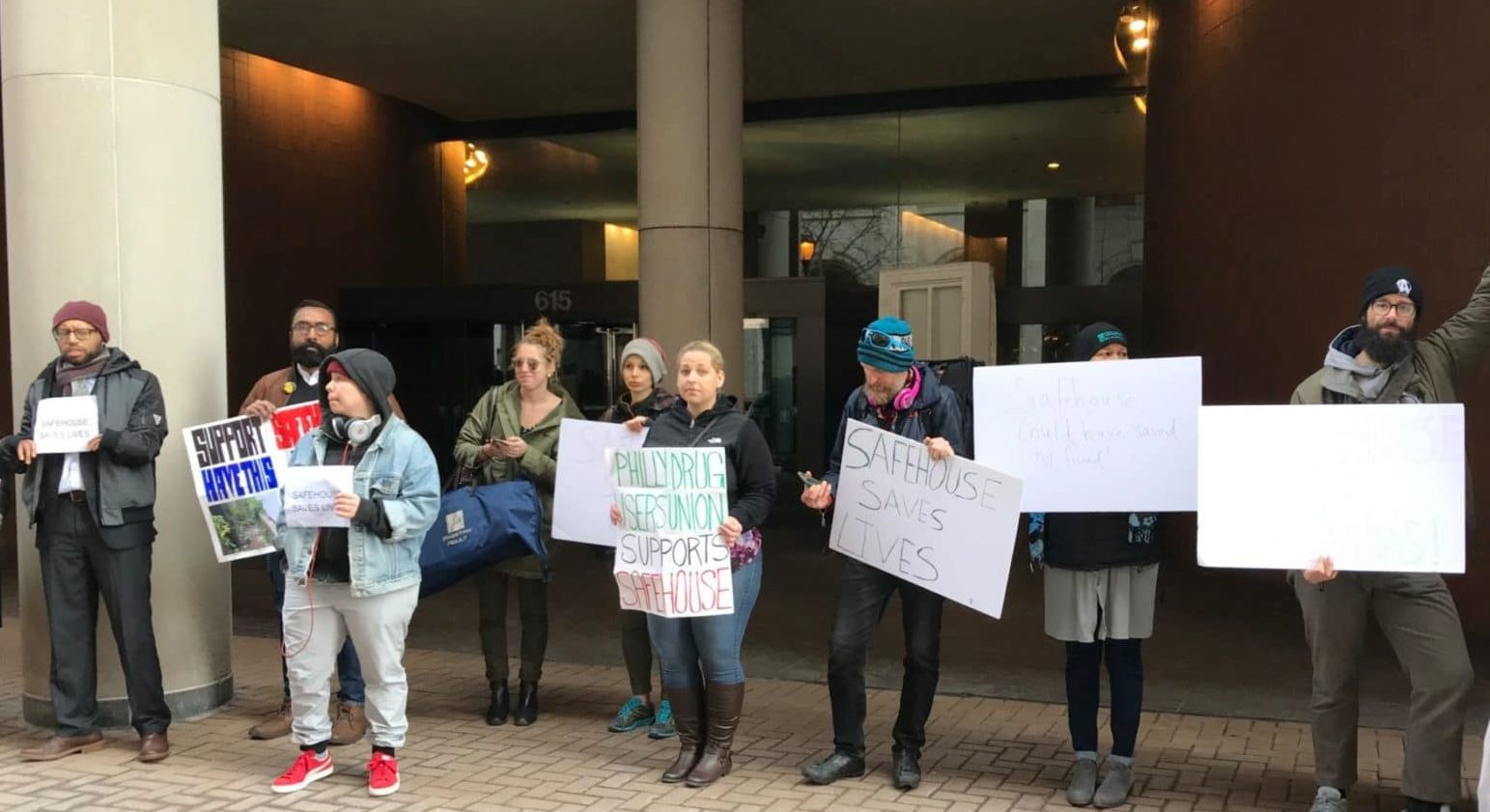The future of what could be the United States’ first legal safe consumption site (SCS) currently hinges, in large part, on how people perceive its purpose: saving lives, or promoting use.
On November 16, a panel of three federal appellate judges heard oral arguments in USA v. Safehouse debating the meaning and intent of the Controlled Substances Act, a key legal provision of the drug war.
Representing Safehouse, the embattled Philadelphia-based harm reduction organization, attorney Ilana Eisenstein stressed that Safehouse’s SCS has the sole purpose of “saving lives,” not to “make available for use […] the place for the purpose of […] using a controlled substance,” as federal law prohibits.”
On the opposing side, US Attorney William McSwain—a Trump-appointed prosecutor who initiated the lawsuit on February 6, 2019 with the intent to preemptively block the SCS from opening—falsely claimed that Safehouse’s primary purpose was to facilitate drug use, and that its participants’ main reason for attending would be drug use itself.
The two were before the US Court of Appeals for the Third Circuit because a district judge hadn’t found McSwain’s argument convincing. On February 25, 2020, US District Judge Gerald Austin McHugh found that Safehouse’s overdose prevention model does not violate the so-called “crack house statute,” authored in 1986 by then-Senator and now President-elect Joe Biden, which prohibits “maintaining drug-involved premises.” The next day anti-drug-user vitriol erupted in Philly, and Safehouse chose to “take a pause” in light of the NIMBY protest.
Judge McHugh neatly summarized the case earlier this year: “Safehouse does not hide that illegal substances will be used on its premises. To the Government, that alone is enough to resolve the statutory question,” of whether Safehouse’s SCS violates the crack house statute. “But that position depends upon an overly simplistic formulation of ‘purpose,’ one that it struggled to defend at oral argument,” wrote the district court judge in his memorandum.
In the latest hearing, McSwain’s reasoning seemed to stumble, as it had already under Judge McHugh’s scrutiny, when hypothetical situations and their attendant legality were posed by appellate judges. In one example already raised by the district court judge, Appellate Judge Thomas Ambro asked about the legal fate of a parent permitting their child to use drugs in their home in order to prevent or respond to an overdose. Would the parent be prosecuted under the “crack house statute”?
McSwain concluded that they would not, just as he had when questioned in the lower court. McSwain’s response seemed to be “contrary to [his] previously avowed core reading of the statute”—that the “crack house state” prohibits anyone from intentionally and knowingly permitting drug use in their controlled space, as District Judge McHugh wrote.
Safehouse capitalized on McSwain’s inconsistent logic to underscore its own reasoning: that Safehouse is making space “available for use” for the singular purpose of preventing overdoses and reducing other harms, not for drug use per se. When a judge pushed Eisenstein on why Safehouse can’t just be seen as providing a space for drug use, she responded, “I think if that were the interpretation of the statute, then McSwain’s interpretation of parents who allowed a child to come use at their residence would be different,” according to the Philadelphia Inquirer.
In other words, McSwain recognizes that making available a space to prevent overdoses is not prosecutable in some instances—he just doesn’t recognize this for Safehouse. According to the judge, McSwain even admitted before the district court that such a parent would not have an “unlawful purpose in participating in such life-saving activity.”
Photograph of Safehouse supporters in 2019 by Christopher Moraff





Show Comments